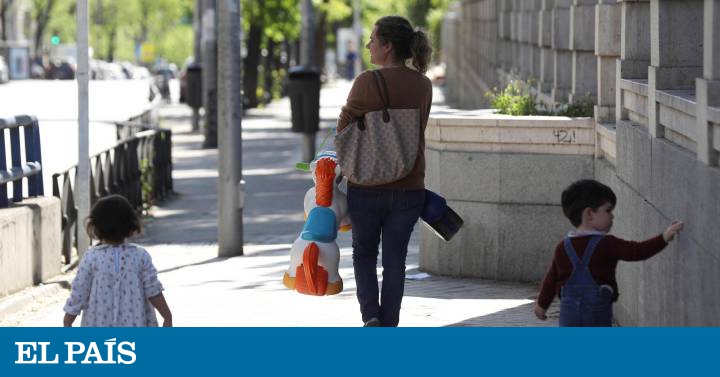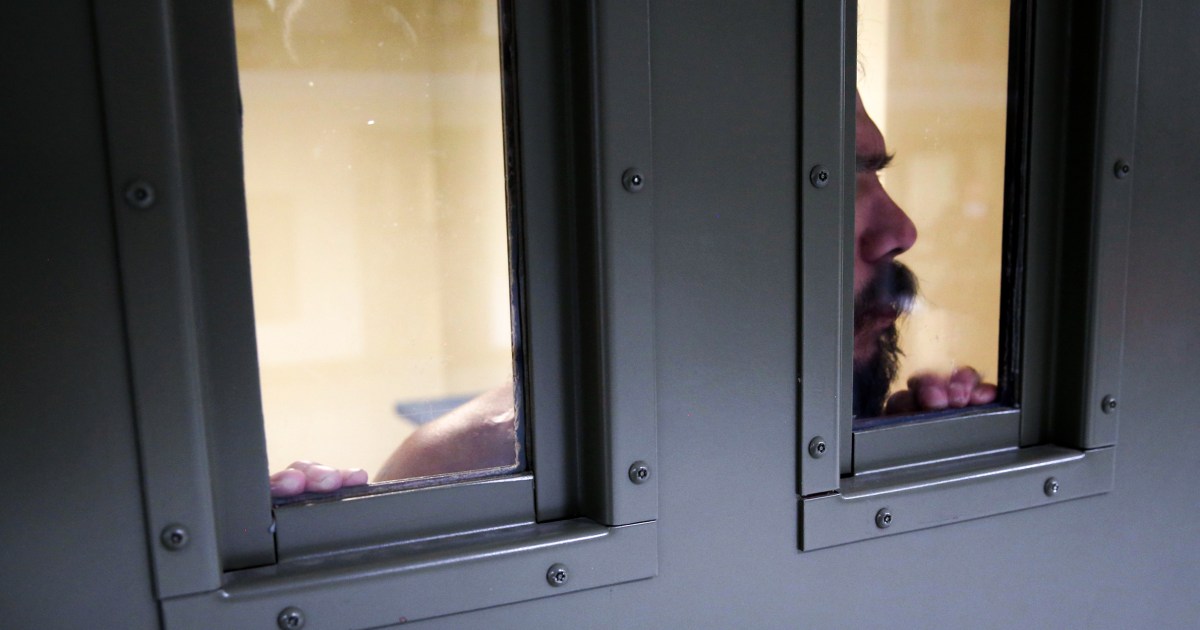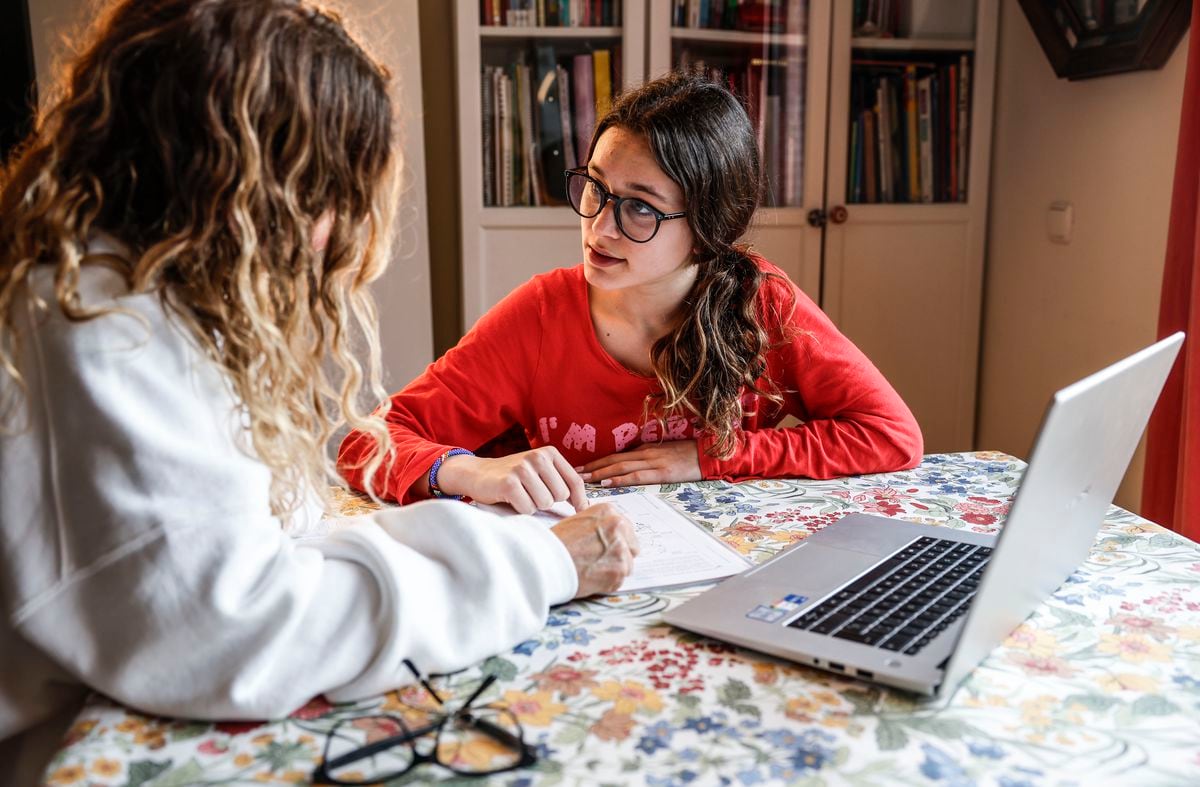MORE INFORMATION
Ada Castells: "Being a mother is the most difficult job and the most important thing is to do well"
Telework and care confined without forgetting the partner
Confinement has abruptly changed the responsibilities of parents towards their children, not that before the coronavirus pandemic they did not have them, but suddenly, parents not only care and educate, but are also teachers, cooks, monitors of free time ... And all this, in a limited space, such as the home, and in which they also have to combine many times their work, or teleworking, with all these tasks.
The closure that families have been living for almost two months has caused many to change their routines in order to reconcile in the best possible way. A situation that can be complicated a little more in the coming days, when many fathers and mothers must return to their jobs, while their children cannot do the same by going to school. Although there is an exception. Only minors from 0 to 6 years old can attend educational centers, but when both parents work outside the home. From the educational centers they clarify that "the return to the classrooms will not be to follow the educational program, but to counteract the care tasks that parents cannot do", according to information provided to parents at a school in Madrid. The rule thus leaves all others out until September, except for recovery tasks, putting many families in check.
All this chaos to which families have been subjected, new for everyone and necessary in view of the large number of infected and deceased people in recent weeks, has made each member of the family nucleus acquire its share of responsibility in the tasks of this new upbringing. . But is it being an equal deal? Are fathers and mothers doing chores the same way?
Homework distribution
According to a study that is being carried out by professors from the Department of Sociology and Social Anthropology of the Universitat de València (UV) Cristina Benlloch, Empar Aguado and political scientist-lawyer Anna Aguado: “Women with minors who telework bear most of the stress of confinement ”. The research, in which participation has been voluntary and in which some of its conclusions have been published in an article in the scientific dissemination platform The Conversation , is part of the project C family reconciliation in confinement time by COVID-19 ( Family reconciliation in times of confinement , by its name in English).
The study aims to know how confinement affects work and family reconciliation, as explained in a statement from the university. From telephone interviews and an online survey, the experts conclude "that school monitoring of sons and daughters of educational age is done above all by mothers and that in some cases women are having to facilitate teleworking for their partners." This fact, according to the authors, has become "an element of anxiety and stress added to the fact of teleworking."
The objective was to analyze how times are being managed at home during confinement. "It is common for mothers to telework during the morning, either delaying the time to go to bed or getting up before the rest of the family members," explains Cristina Benlloch in the text. They also add that it is true that "in some couples there is a greater willingness on the part of men to do tasks that they did not usually do before, such as putting washing machines, cooking, shopping or sharing hours of play with children." In short, what this study aims to do is “understand the effects that this crisis may have on reconciliation among women who are teleworking with minors in their care. Observe how reconciliation is being addressed from family units at a time when the home condenses all the social spaces of production and reproduction, "concludes Anna Aguado Roselló in the statement.
Mothers' difficulties in teleworking
"80% of women have difficulties teleworking during this confinement", according to data from the Yo No Renuncio Association survey, promoted by the Malasmadres club, and launched on the occasion of Conciliation Day on March 23 , in which 12,604 women and mothers participated. According to their results, "in 97% of cases the interruptions of sons and daughters is the main barrier that mothers encounter when it comes to teleworking, closely followed by a lack of concentration (67%)." Regarding the distribution of tasks and the co-responsibility of families, their data indicates that this topic has not improved in this time of confinement: “In fact, in 66% of homes it has been maintained and in 13% of them has gotten worse. ” According to Malasmadres, all this has meant that "seven out of 10 women have failed to establish an exclusive physical space for work and that three out of four are not complying with working hours."
"Seven out of 10 women have failed to establish an exclusive physical space for work and three out of four are not complying with working hours," according to a Malasmadres survey
"It is true that men participate more and more in the education of their children, but it is true that women suffer more stress because they anticipate more what is going to happen, wanting to have everything under control, and that can cause them greater tension, "explains Pilú Hernández Dopico, a graduate in special education: hearing and language at the Pontifical University of Salamanca. "We have to take into account that no one has chosen this situation, but that it is something imposed due to the circumstances we are experiencing. To this we must add that the children are also studying at home, without adequate knowledge or digital competence suitable for distance learning, "adds the expert.
For Hernández Dopico, it is paradoxical that digital competence is included in our Education Law as something that is being worked on and that must be acquired at the end of the Primary Education stage. "With this situation we have verified that it is something that is not fully worked in the classroom. The use of the PDI (Interactive Digital Boards), does not necessarily imply the full knowledge of digital competence". "In this way, We have corroborated that it has been the families in this confinement scenario that have made it possible for this situation to have taken place, "explains the expert. "That is why there is an extra mental burden, but it does not have to be carried more by women than men. All this depends on many nuances such as, for example, work schedules, routines, ways of being, among others ... In short in all the houses the emotional load has been, is being, high, "he continues.
The expert maintains that in order to achieve an equitable distribution of the tasks, it will first be necessary to establish a distribution of the quantitative tasks, "for example, one does the food, another the laundry." "The problem comes when they are qualitative tasks," he continues, "each member of the family is better at one thing or has more facility for something or simply a more accessible schedule, so according to this, it is best to compensate these tasks with the specific ones of the house ". "We must not forget that it is a good time to include the little ones in household chores and treating the house as a real school, where each room has its specific work: for example, the kitchen will be a real laboratory where they can learn like a food it changes color, from liquid to gaseous state, etc. ", concludes Hernández Dopico.
Tips for mothers to take it better
The first and I think more importantly, mothers should not feel, we must take care of ourselves, "since this confinement is affecting all aspects: life, mental health, plans for the not too distant future, etc.", explains Pilú Hernández Dopico.
Self-care: if you don't take care of yourself, nobody will take care of you, it is important and necessary to be strong in order to help your loved ones.
Make decisions: although some are better than others, but make them.
If one day you do not feel well, surviving is worth and delegate.
Do not worry, take care: many times we anticipate what is going to happen and at this time nobody knows, so do not worry and act
You can follow De mamas & de papas on Facebook, Twitter or subscribe here to the Newsletter.








/cloudfront-eu-central-1.images.arcpublishing.com/prisa/WPELUPQUZNBGDDGMB6PTNPDWQ4.jpg)
